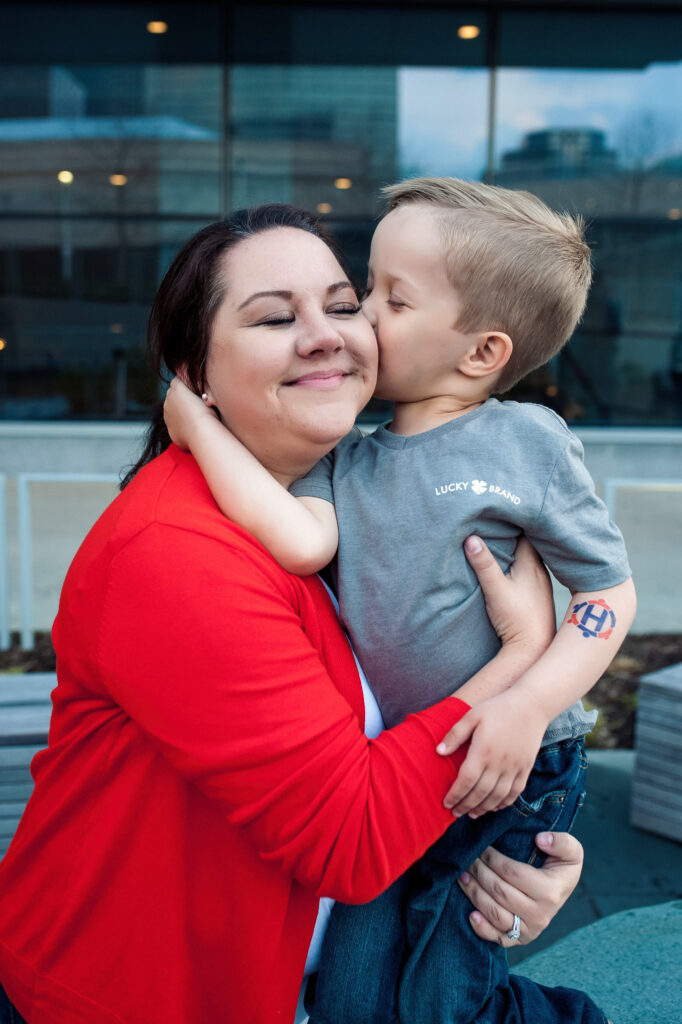
Financial Support
Set a realistic budget
- Base your budget on what is left after you pay monthly bills
- Include food, gifts, and travel
- Adjust the budget as you spend
Create a list of gifts and food
- List prices along with gift and food items
- Avoid unplanned and frequent trips to the store
- Meal alternative: potluck
Alternative gift options
- Be creative with personal, homemade gifts
- Start a gift exchange with family or friends, so that you’re only buying one gift instead of several
- 3-gift rule: one they want, one they need, one they read
Avoid buy-now, pay-later
- Buy-new, pay-later often comes with high-interest rates, late fees, and other costs, especially with any missed payments
- Create repayment plan if you cannot avoid using buy-now, pay-later or credit cards

Mental Health Support
Stay Connected
- Include family in preparing for the holidays
- Serve your community by volunteering at a local organization or cleaning up your neighborhood
- Get creative with video chat by playing online games, virtual field trip, taking a virtual class, etc
- Create new connections (meetup.com)
- Find a support group
- Invent a new tradition
- Ask for support, be specific
Get ahead of stress
- Put all activities and breaks for yourself on a calendar
- Set an alert on your phone for planned self-care
- Create escape and coping plans. Keep it with you.
- Say “no”, guard your time
Let it out
- Acknowledge and accept feelings
- Write in a journal
- Create manageable to-do lists
- Keep a gratitude list
- Connect with others
Self-care
- Keep time for yourself
- Have a list of activities you enjoy and do one thing every day to reset and recharge
- H.A.L.T (Hungry? Angry? Lonely? Tired?): Take a break!
Healthy habits
- Avoid numbing or avoiding feelings
- Include healthy meals and physical activity (even if it is walking around the kitchen!)
- Stay hydrated and well-rested (6-8 hours of sleep each night)
- Reduce news and social media
- Stay present
- Try breathing exercises
Finding help
- Insurance provider directory
- Consult professionals
- Local university
- Church
- Community organizations
- Social worker
- Physician
- Human Resources at work
HFA Financial and Mental Health Resources
Healthy Living Items Assistance
Healthy Living Items Assistance helps individuals in the bleeding disorders community with the cost of medically necessary items that are not affordable out-of-pocket or covered by insurance, including workout equipment that will help community members achieve a healthier lifestyle.
Disaster Relief (Non-HFA)
Dealing with a hurricane, wildfire, or earthquake is challenging for anyone; relocating your family and ensuring everyone’s safety when someone has a bleeding disorder presents an entirely more complicated scenario. These resources help you prepare for a disaster, respond to immediate needs, and address long term recovery.
Manufacturer Assistance Programs
Programs are available to help reduce the financial burden for medications. This list of manufacturer programs includes insurance navigation, manufacturer copay assistance for people who have insurance but need help with out-of-pocket costs for bleeding disorder prescriptions, and product assistance for people who are uninsured, underinsured, or experiencing a lapse in coverage.
Financial Management
Whether you have a bleeding disorder yourself or are a caregiver to someone with a bleeding disorder, you may find yourself in a position of having “more months than money” or struggling to create savings for unexpected expenses. This list includes financial planning resources about money basics, saving and spending plans (budgeting), debit and credit, increasing income, reducing expenses, and red flags to look out for.
Employment Support
It is often a juggling act to live with a chronic condition and maintain your livelihood. This list has resources related to employment issues including legislation to protect your rights, job search tools, interview tips, self-advocacy resources, and more.
Emotional and Financial Support for the Holidays
The holidays can be both wonderful and very trying. HFA provides you with financial resources and mental health tips and strategies.
